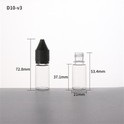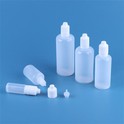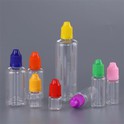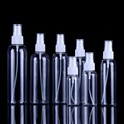The dangers of reusing a plastic bottle
In 2008, a research paper from the USA found that plastic bottles could be leaching chemicals such as antimony, bisphenol A (BPA) and phthalates into the water contained in them. Although the full effects of these substances on the human body are not yet understood, they are suspected of being endocrine disruptors and carcinogens, leading to serious health complications in higher concentrations. Reusing a plastic bottle simply gives them more chance to wreak this damage.
How to keep yourself safe
To avoid exposure to harmful chemicals from your bottle, you should first check from which type of plastic it is made. On the base of each bottle, there should be a number surrounded by the universal “recycling” triangle sign. If your bottle is made from #2, #4 or #5, you should be fine to reuse it. If it’s made from any other number, you may want to steer clear of it.
Other uses for old plastic bottles
Of course, most plastic types can be recycled and this is a much preferable option to sending it to landfill. However, if you can find another purpose for your used bottle besides carrying water, this could give it a whole new lease of life. Here are just some ideas for how to reuse an old bottle:
- Pen and pencil holder
- Bird feeder
- Watering can
- Slow-drip outdoor irrigation system
- Indoor planter
- Tool rack
- Snack storage






